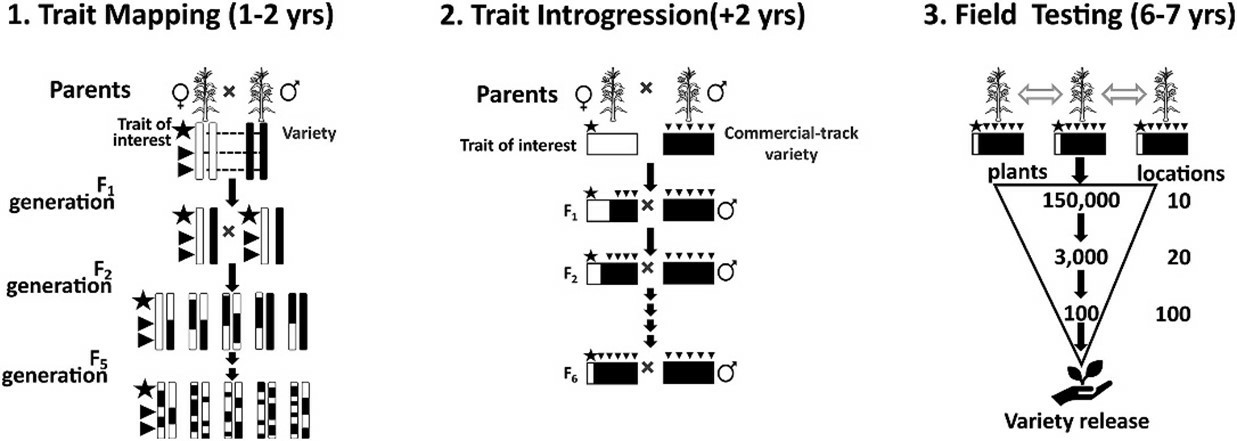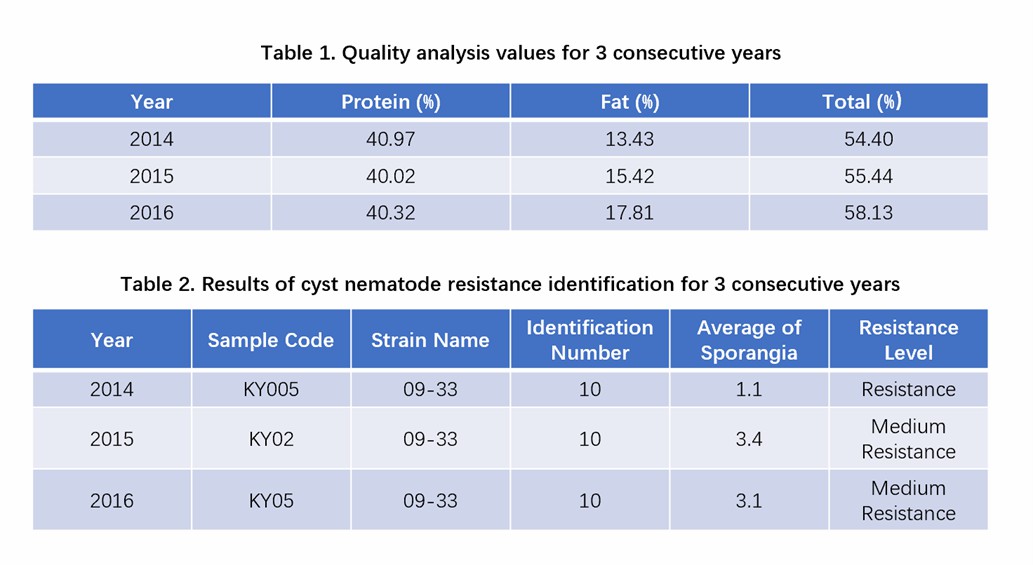Hundreds of new crop varieties are released every year by commercial conventional breeding to improve crop productivity, bolster food security, enhance nutrition, and expand consumer choice. The process of conventional breeding has evolved, creating an effective framework that not only improves crop performance but also supports the development of safe and nutritious foods. Plant breeding is a process of making decisions about which parents to choose, which parents to cross pollinate, and which progeny to advance.
 Fig.1 A general framework of the conventional breeding process. (Kaiser, et al., 2020)
Fig.1 A general framework of the conventional breeding process. (Kaiser, et al., 2020)
Lifeasible offers comprehensive services covering a wide range of cutting-edge technologies to advance your projects. Our scientists have developed a series of innovative solutions to help clients with the conventional breed for nematode resistant varieties.
 Fig.2 Results of quality analysis values and resistance identification against SCN for 3 consecutive years.
Fig.2 Results of quality analysis values and resistance identification against SCN for 3 consecutive years.
Lifeasible has extensive experience and expertise in plant science. We are committed to providing you with timely and high-quality deliverables. At the same time, we guarantee the cost-effectiveness, completeness, and simplicity of the report. If you are interested in our services or have any questions, please feel free to contact us or make an online inquiry.
Reference:
Lifeasible has established a one-stop service platform for plants. In addition to obtaining customized solutions for plant genetic engineering, customers can also conduct follow-up analysis and research on plants through our analysis platform. The analytical services we provide include but are not limited to the following:
Get Latest Lifeasible News and Updates Directly to Your Inbox
Adaptive Evolutionary Mechanism of Plants
February 28, 2025
Unraveling Cotton Development: Insights from Multi-Omics Studies
February 27, 2025